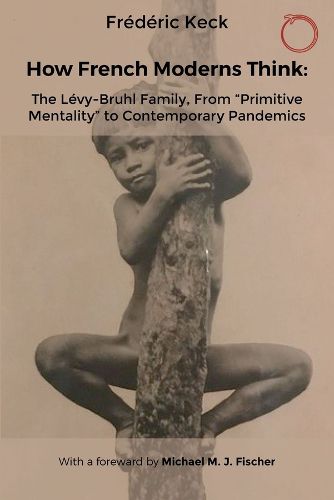Readings Newsletter
Become a Readings Member to make your shopping experience even easier.
Sign in or sign up for free!
You’re not far away from qualifying for FREE standard shipping within Australia
You’ve qualified for FREE standard shipping within Australia
The cart is loading…






This book traces the contributions of the Levy-Bruhl family to social and political thought and expertise in 20th-century France, shaping the anticipation of economic and health crises.
How French Moderns Think tells the story of the French sociological tradition through four generations of the Levy-Bruhl family: Lucien, who founded the Institute of Ethnology at the University of Paris; his son Henri, who founded the Institute of Roman Law; his grandson Raymond, who took part in the creation of the National Institute of Statistics and Economic Studies; and his great-grandson Daniel, a vaccine specialist at the Institute of Public Health. This family history casts a new light on the philosophical debates about "primitive mentality" and the "savage mind." By drawing on the expert knowledge inherent in this family genealogy, the articulation between the logical and the "pre-logical" is not a cognitive question but rather a problem of anticipating unpredictable events. By relating Levy-Bruhl's engagements from the Dreyfus Affair to the Minister of Armaments during the First World War, Keck narrates the confrontation of the socialist ideal of justice and truth with the French colonial experience and its transformations in global technologies preparing for pandemics.
$9.00 standard shipping within Australia
FREE standard shipping within Australia for orders over $100.00
Express & International shipping calculated at checkout
This book traces the contributions of the Levy-Bruhl family to social and political thought and expertise in 20th-century France, shaping the anticipation of economic and health crises.
How French Moderns Think tells the story of the French sociological tradition through four generations of the Levy-Bruhl family: Lucien, who founded the Institute of Ethnology at the University of Paris; his son Henri, who founded the Institute of Roman Law; his grandson Raymond, who took part in the creation of the National Institute of Statistics and Economic Studies; and his great-grandson Daniel, a vaccine specialist at the Institute of Public Health. This family history casts a new light on the philosophical debates about "primitive mentality" and the "savage mind." By drawing on the expert knowledge inherent in this family genealogy, the articulation between the logical and the "pre-logical" is not a cognitive question but rather a problem of anticipating unpredictable events. By relating Levy-Bruhl's engagements from the Dreyfus Affair to the Minister of Armaments during the First World War, Keck narrates the confrontation of the socialist ideal of justice and truth with the French colonial experience and its transformations in global technologies preparing for pandemics.